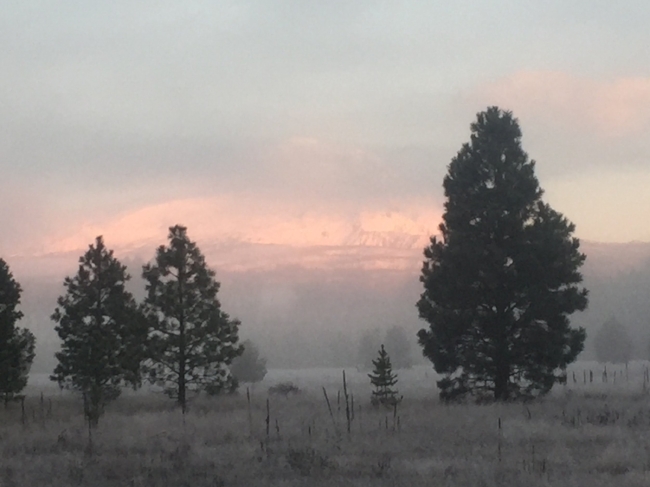“In conflict, be fair and generous.”
~Lao Tzu
Early in our marriage we were heading out for a family road trip. It always takes more than you think to get out of town, but the suburban was finally packed, the kids were in the car, and I was itching to get on the road. Just as we reached the top of our driveway, Tom noticed that we hadn’t brought in the daily newspaper and wanted to stop and get it. I wanted him to keep driving and forget it. The situation quickly devolved into a stand-off, with us arguing in the front seat. It was a great start to our vacation.
Finally, I got out and picked up the paper and headed back to the car. Looking at Tom through the window, I noticed that he had a satisfied smile on his face, like he thought he’d won. So I did an about face and hucked the paper for all I was worth into the hedge. I guess I showed him.
It was a quiet car ride for awhile, which gave me time to notice that his ears could actually turn red. We continued to stick to our own guns for the better part of the day, and as I remember, it was one of our first real fights.
Over a newspaper.
Of course that wasn’t really what it was about. Conflicts are rarely about “the thing, but about something deeper. Whether it’s a desire to be heard, understood, respected, seen, protected, acknowledged, or needing even a tiny sense of control, conflict boils down to more than winning or losing. Or at least it could.
Fast forward 10 years after the driveway showdown. My sister and I were at the Oregon Coast with our daughters for our annual beach trip. The six girls ranged in age from 18-23, and this particular morning we were gathered around a table at Sleepy Monk (best coffee on the planet). A middle aged couple standing in line next to our table engaged us in conversation. As it turned out, he was a marriage and family therapist, and as we all chatted he learned that one of my nieces was engaged to be married that spring. This launched us all into a conversation about relationships and marriage. Because we were talking about relationships and marriage, the topic of conflict came up. Go figure. At any rate, he got very quiet, then he looked around the table and asked Girls, do you know what the purpose of conflict is? I can’t remember what they said, but I’ve never forgotten his answer
The purpose of conflict is connection.
If you are still reading this, I want you to find pen and paper and write those words down. Right now. Really.
The purpose of conflict is connection.
Now look at those words. Think about them. It isn’t a stretch to say that we’ve all of had an experience of conflict that produced anything but connection, and most of us don’t wake up in the morning and say, Gee. I hope I have a conflict today. Most of us don’t go looking for one. Most of us would prefer not to have one. Some of us will do almost anything to avoid one.
If you are still with me, I want you to pick up the pen again, this time in your non-dominant hand. The one you don’t write with, and write those same words down. Right now. Really.
The purpose of conflict is connection.
If you’re still with me, my guess is that it took you longer to write it that time. It might be kind of messy. Hard to read. Look kind of like when you first learned to write as a kid. It was probably very uncomfortable, awkward, and even a little painful. All of which sounds a whole lot like how conflict feels.
If you’re still with me, I know that you will always prefer to write with your dominant hand, but imagine if you were to write those same words, with your non-writing hand, ten times a day, every day for a month. You’d get better at it, and it would become a skill that would serve you when you needed it.
All of this to say, that the only way to get better at conflict is to practice it.
Now I’m not saying go out and rustle up some conflict so that you can practice. But, the next time something comes up, and it will, where you could step into the messy, uncomfortable, awkward, and maybe painful conversation, go ahead and dip your toe into the conflict waters. And do it with the intention, not of winning, or being right, or getting it over with, but with the intention of creating a little more connection. Take the high road and listen deeply. Take the conversation seriously and yourself lightly. Seek to understand and then to be understood. Listen with the kind of genuine attention that you would like to be given. Speak as you would like to be spoken to. Remember to breathe. Be willing to hold on to your convictions and let go of your assumptions. Be authentic, vulnerable, brave and curious.
Conflict happens, and when it does, if we call on the very best of ourselves, connection happens too.
Hucking a newspaper into a hedge doesn’t really help. Although it’s really fun to see if you can make your husbands ears turn red.













